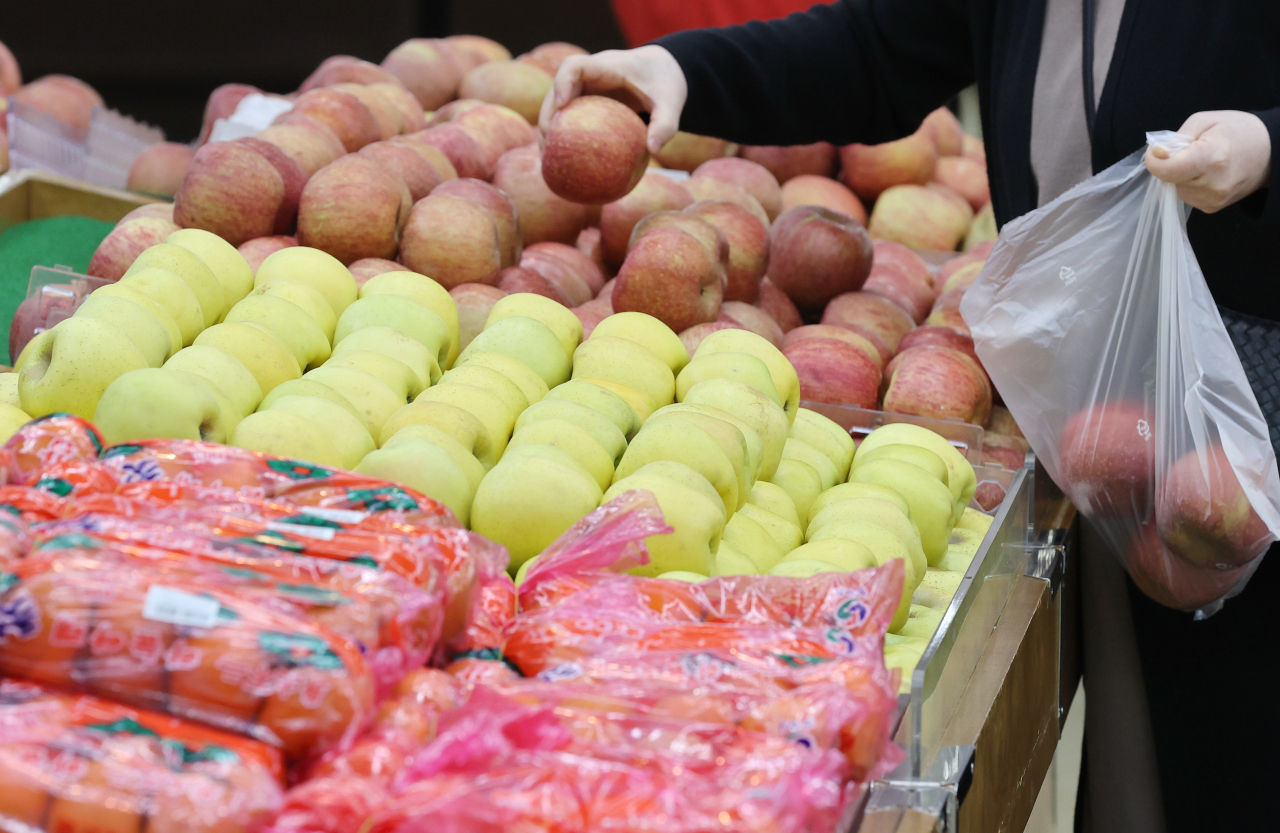 |
A customer picks up apples at a supermarket in Seoul, on Thursday. (Yonhap) |
South Korea’s fruit consumption has diminished by almost 20 percent over the past 15 years amid supply shortages and soaring prices, government data found Sunday.
According to the Ministry of Agriculture, Food and Rural Affairs, the nation’s per capita fruit consumption declined by 19 percent to 55 kilograms in 2022 after peaking at 67.9 kilograms in 2007.
Tangerines and apples topped the per capita consumption with 11.8 kilograms and 11.0 kilograms, respectively, followed by pears (4.4 kilograms), grapes (4.4 kilograms), peaches (3.7 kilograms) and persimmons (1.9 kilograms).
A separate report by the Rural Development Administration said fruit consumption is closely linked to prices as they are often perceived as the least essential food item, whose consumption declines when prices rise.
During the COVID-19 pandemic, for instance, consumers reduced spending on agricultural, livestock and fisheries products overall by 1.4 percent on average. While livestock purchases declined 0.8 percent, agricultural products and fruits saw 6.9 percent and 9.3 percent declines, respectively.
Amid deepening inflation in recent months, there is little sign of an immediate turnaround in fruit consumption and prices here.
In January and February this year, fruit prices jumped almost 40 percent from a year ago, the steepest surge in 32 years. Tangerines and apples – the two most popular fruits – saw their prices soar 71 percent and 78 percent, respectively, during the same period.
Reduced production is cited as the key factor driving up fruit prices.
The nation’s total fruit cultivation area has decreased from 172,900 hectares in 2000 to 158,830 hectares in 2022. The total number of farmers in Korea, hit by the nation’s fast aging, also steadily decreased from 2.85 million to 2.17 million over the past decade.
Abnormal weather conditions, such as torrential rain, have posed additional challenges to fruit production. Last year, apple and pear production saw a significant decrease of approximately 30 percent each, largely due to damage caused by low temperatures during spring blooming and summer downpours.
In order to tackle the chronic supply shortages of fruits and other agricultural items, Agriculture Minister Song Mi-ryung held an emergency press conference Thursday, during which she pledged to establish a consultative body for fruit production while expanding financial support for farmers.
"We will invest 20.4 billion won from March to April to lower prices of 13 items, including apples and green onions,” the minister said. She also hinted at expanding imports to alleviate the supply issues, especially for apples and pears.







